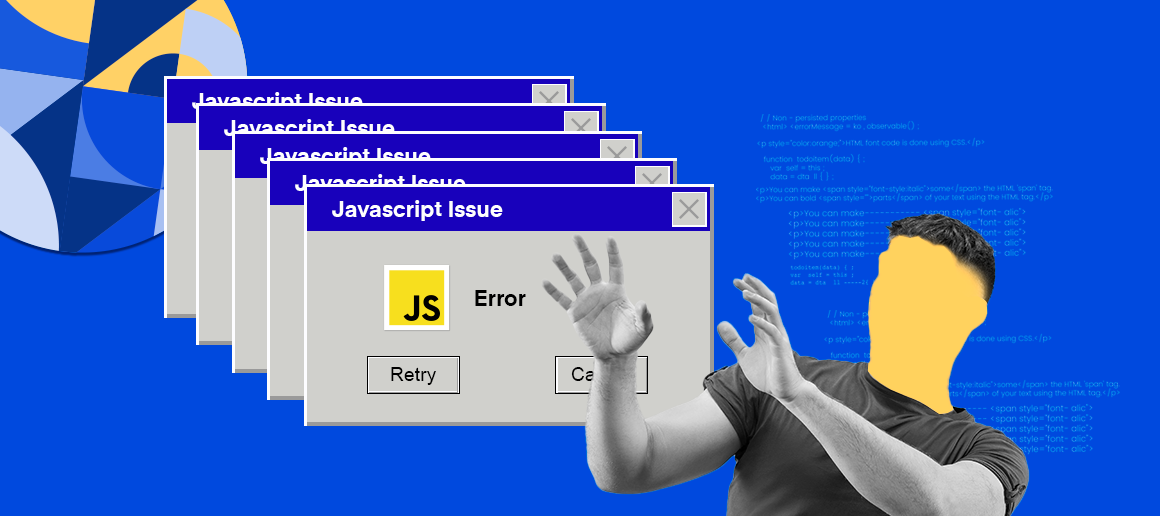Developer onboarding ensures that everybody is on the same page right at the beginning.
In fact, new employees who had a structured onboarding process were 58% more likely to still be with the company in three years.
It’s clear that there is a direct link between employee retention and onboarding processes.
Yet, many companies don’t put in the work to develop a formal onboarding program. Or perhaps, they just don’t know how.
If you’re ready to do the work but don’t know where to start, sit tight! This piece will give you the 101 on developer onboarding.
At Trio, we not only deliver top-tier content and insights in software development but also offer the finest South American developers for outsourcing. Explore our talented Argentinean developers, Chilean developers, and Brazilian developers to elevate your projects today.
Are you ready to start your development project?
We have the developers you need to take your development project in the right direction.
Companies are proven to grow their business faster with Trio.
What Is Developer Onboarding?
Developer onboarding is the process of integrating a new developer into your business.

This includes getting your new developer acquainted with the organizational, technical, and social procedures of the company.
Developer onboarding can include getting acquainted with:
- Team workflows
- Company culture
- Time-off policies
- Codebase/coding standards
Naturally, this process starts at hiring. But the strongest onboarding programs takes course over several weeks and include regular check-ins, training, resources, and a curriculum.
When companies fail to onboard new employees, disasters occur. And usually, the new hire is the first to blame.
But in reality, the lack of a sufficient onboarding program is what fuels many problems down the line, whether you recognize them or not.
Developer Onboarding Checklist
There are several essential components of a competent employee onboarding program. Here’s a checklist offering the fundamentals of developer onboarding.
☐ Give a Hearty Welcome
First impressions are everything. You can avoid turnover by building a positive, working relationship with your new developer.
If you just hired a remote developer, this can take place over Zoom or another online video conferencing platform.
This is also a good idea to set expectations, and that goes both ways. Discuss what your company can do for the developer and what you want your developer to bring to the table.
Your agenda items should address:
- Normal working hours for the company and its employees
- The team the new developer will be working with
- Tools for collaboration and communication (e.g. remote work tools)
- Technical guidelines for the software development process
It’s also important to determine the pace your new hire should be working at and whether or not it will accelerate over time.
Handle Business Right Off-the-Bat
It’s unlikely you’ll ever meet someone who actually likes paperwork. Still, it has to be done.
For new hires, they’ll no doubt have to trudge through quite a bit of human resources (HR) paperwork before getting started.
Do your new developer a favor and help them through the process. Make certain they dot all their Is and cross their Ts, and answer any questions the developer may have.
Get Organized
See to it that the new developer has access to all the equipment they need to be successful at work.
You may have to give the new hire access to your company software or provide them with a functional computer for their workstation.
Either way, it’s imperative that you get organized before your new hire begins their first day.
Managing a remote team can be especially difficult while you’re putting out the fires that an ill-equipped developer can stir up.
For your reference, take a look at some of the vital resources some businesses forget to mention or supply:
- Access to the company chat
- Access to the project management system
- Access to internal services, like IT support tools
Make Introductions
Besides the technical aspect of onboarding developers, the onboarding process is largely social as well.
Though any start-up wishing to scale means business, you want to avoid an overtly corporate culture.
Do this by fostering a sense of trust and amiability among your employees. In the context of onboarding, you should announce your new hire to the rest of the team.
Your current employees will rest assured with the knowledge that you’re keeping things transparent.
Plus, this will give the rest of your software development team a chance to get to know who they’ll be working with.
Stay in Touch
Arrange weekly 1-on-1s to exchange feedback and celebrate any important accomplishments.
As time progresses, these meetings can be less frequent but the goal is to always stay in the loop.
You should be casually acquainted with all the people on your team. Their engagement and eagerness are directly tied to how well you support them, figuratively and literally.
Developer Onboarding Best Practices
You might have checked off the basic steps for developer onboarding. But some extra guidance goes a long way in coordinating a successful onboarding experience.

1. Start Small
Regardless of the immense potential you probably saw in your new hire from the beginning, it’s easy to get overwhelmed in new environments.
Maybe it’s best that your new developer doesn’t jump right into the thick of it at the start.
Instead, you can give them some small, non-critical tasks to get them gradually adjusted to the optimal pace they should be working at.
Assuming these tasks go smoothly, your developer will have renewed confidence and they’ll be more than ready to tackle whatever comes next.
Of course, you should only keep it simple for the first week or so. Most developers love a challenge.
2. Share What You Know
Create and endorse a system of knowledge sharing so relevant information never gets lost in the ether.
Make certain your new hire is privy to vital technical documentation, credentials, and project essentials, such as:
- Source code (ideally in a GIT repository)
- Database (and a corresponding setup manual)
- Project dependencies (and related version numbers)
- API keys & credentials
- Test suites
- Deployment credentials
- Development notes, if applicable
3. Use the Buddy System
Okay, so your new developer probably isn’t going to get lost going to the bathroom right before the bus takes off.
But it can be helpful for new developers to shadow another developer who knows their way around the park.
The senior developer can provide the junior developer with useful advice and a backlog of personal experience that will help your new hire settle in.
4. Let Them Know What’s What
Every company does things differently. Developers are well-known to opt for jeans and a tee for a normal day of work.
In other businesses, casual dress is a sign of unprofessionalism.
The takeaway here is that you should never rely on a new hire to make assumptions about the company culture.
Naturally, this goes deeper than day-to-day attire. Some business environments look down on political talk. Or perhaps people on the team aren’t keen on sarcasm or edgy humor.
It’s up to you to clue your developer in on what is socially acceptable versus what will be received with dirty looks.
5. Be Generous
Gifts are a friendly gesture that extends care in material form.
For businesses hiring new developers, sending a well-thought-out welcome package sends a pretty wholesome message to your new developer.
Not only will they feel like they’re genuinely part of the team, but they’ll know you’re happy to have them join your company.
Generally, welcome packages include a welcome letter, branded merchandise, and even some personalized goodies.
6. Invest in Growth
Lifelong learning is ongoing, self-motivated, and constantly in the pursuit of knowledge.
In a business model, continuous learning mirrors this sentiment.
Continuous learning describes a concept in which businesses encourage and assist in the professional development of their employees.
Investing in your developer’s professional growth means giving them opportunities to grow with your company.
A new hire should start learning on day one but it’s your responsibility to make sure the learning never ends.
One way to promote continuous learning is to create a learning plan for your employees.
Focus on learning objectives that improve upon your developers’ current skill set while adding business value.
You should be willing to furnish your employees with the resources they need to complete their learning plan.
Unlock the Secrets to Scaling Your Development Team
Get our comprehensive guide packed with strategies and expert insights on how to efficiently scale your development team. Learn from the best in the industry and take your team to the next level.
Start Developing Now
Developer onboarding is a crucial piece of building a great software development team. However, putting this into practice is far more complex.
At the pre-onboarding stage, you’ll have to get all your affairs in order and confront a hefty stack of paperwork.
During onboarding, you should introduce your new hire to your company, and the technical details of your software project.
In addition, you’ll want to update your developer on the company culture so they don’t get left behind.
And more importantly, don’t forget to give your developer access to whatever they need to begin work.
Post-onboarding, it’s imperative that you maintain a good, working relationship with your developer. Ask how they’re doing and do what you can to invigorate their growth.
No joke. Developer onboarding is a lot of work. The bright side is that you don’t necessarily have to do the work.
Trio, for example, hosts numerous developers who are trained to take on any project, including yours!
But to save you from the hassle, Trio handles all the administrative duties involved in hiring developers, from assessing their technical skills to developer onboarding.
Not to mention, Trio also insures that their developers are communicative and collaborative, with a particular aptness for seamlessly integrating themselves into the companies that hire them.
So what are you waiting for? Hire Trio developers today!







